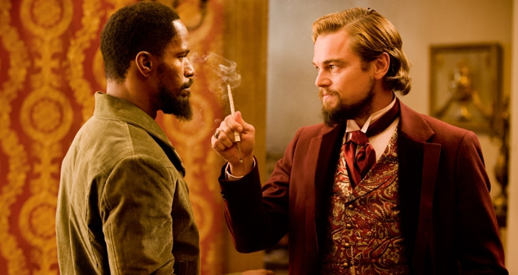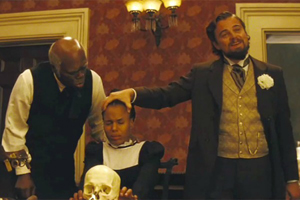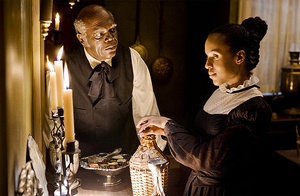
DSU to Host Feb. 7 Panel Discussion on the Film “Django”
|
|
|
|
-
Dr. Jerry W. Ward Jr. is one of the leading experts in the country on author Richard Wright. Dr. Ward is currently a Famous Overseas Professor at Central China Normal University where he directs seminars on African-American literature. He has also served as a distinguished professor of English and literature for more than 40 years at Dillard University and Tougaloo College in Jackson, Miss. He is a founding member of the Richard Wright Circle, the co-editor of The Richard Wright Encyclopedia, and has received the 2011 Richard Wright Literary Excellence Award from the Natchez Literary and Cinema Celebration. His poems and essays have been published in numerous publications.
-
Dr. Candice Love Jackson is the assistant provost and vice president of Academic Affairs at Tougaloo College. A former Department of English chair at the institution, she has applied scholarly focus on such areas as popular culture, black speculative fiction, African-American theater, and Hip Hop culture. An often- published writer on literary subjects, she is currently working on her current project “The Hand I Fan With: Hand Fans as Sites of Racial and Culture Memory” which examines narratives of race through material culture.
-
Deirdre Childress Hopkins is a former film and entertainment editor for the Philadelphia Inquirer. She is the immediate past vice president (print) of the National Association of Black Journalists and is its former national secretary. Currently she is the strategic communications manager for the Pennsylvania Convention Center. She has also previously worked for The Washington Post, The Los Angeles Daily News, United Press International and the Syracuse Post-Standard.
-
Dr. Ahati N. Toure is an associate professor of African History and Africana Studies as well as the director of the Africana Studies Program at Delaware State University. He is the author of the first book-length, critical academic study of one of the architects of the discipline of Africalogy/Africana Studies, John Henrik Clarke and the Power of Africana History: Africalogical Quest for Decolonization and Sovereignty. He has written numerous academic essays that explore issues in Africana history and culture.


 The film starkly shows the slavery era status of many blacks as property of whites. (L-r) Samuel L. Jackson, Kerry Washington and Leonardo DiCaprio.
The film starkly shows the slavery era status of many blacks as property of whites. (L-r) Samuel L. Jackson, Kerry Washington and Leonardo DiCaprio. Among the historical issues the film raises is the awkward hierarchy of slaves within the plantation system, such as the "head negro," played by Samuel Jackson and the slaves under him such as Broomhilda, portrayed by Kerry Washington.
Among the historical issues the film raises is the awkward hierarchy of slaves within the plantation system, such as the "head negro," played by Samuel Jackson and the slaves under him such as Broomhilda, portrayed by Kerry Washington.